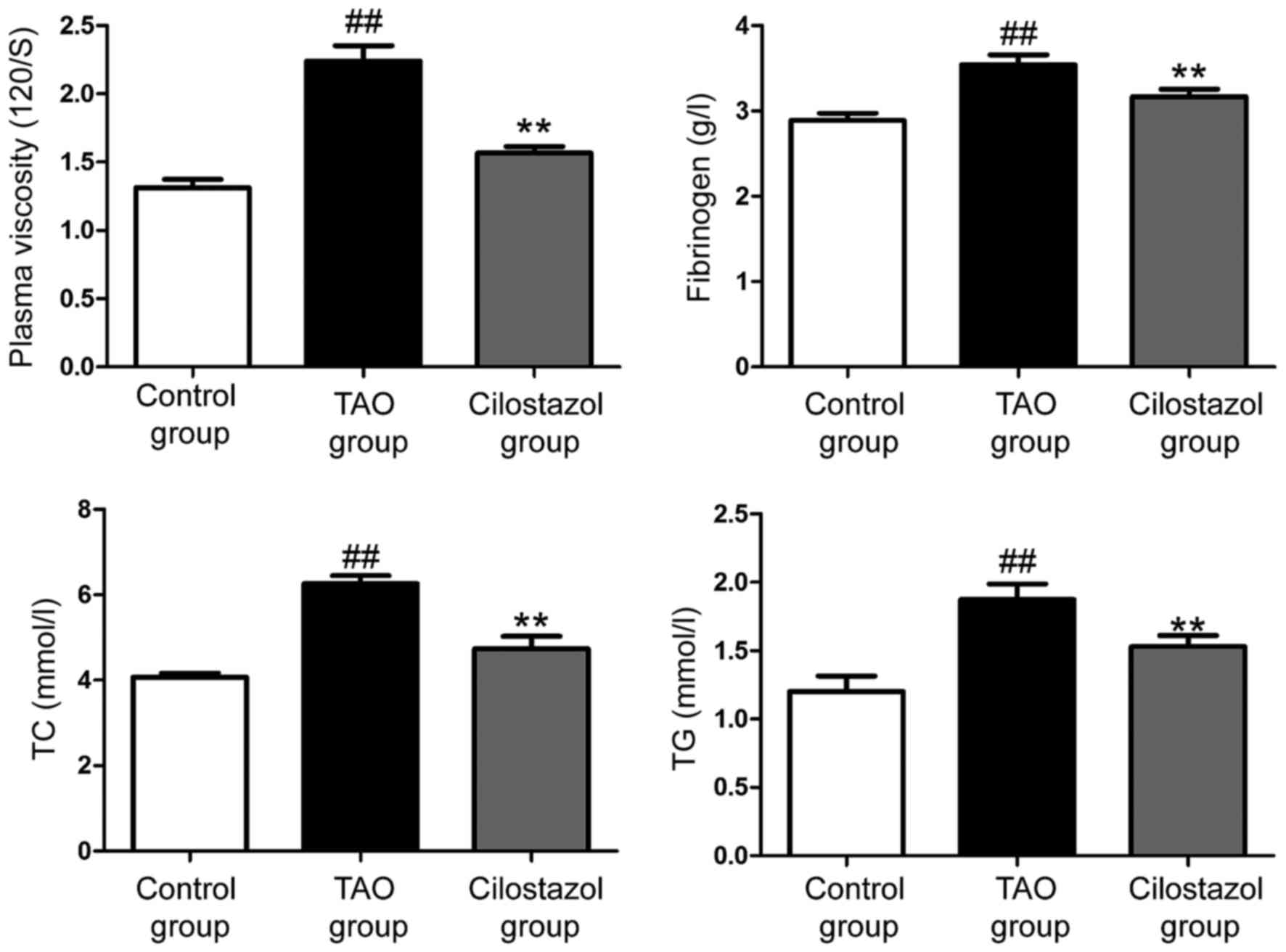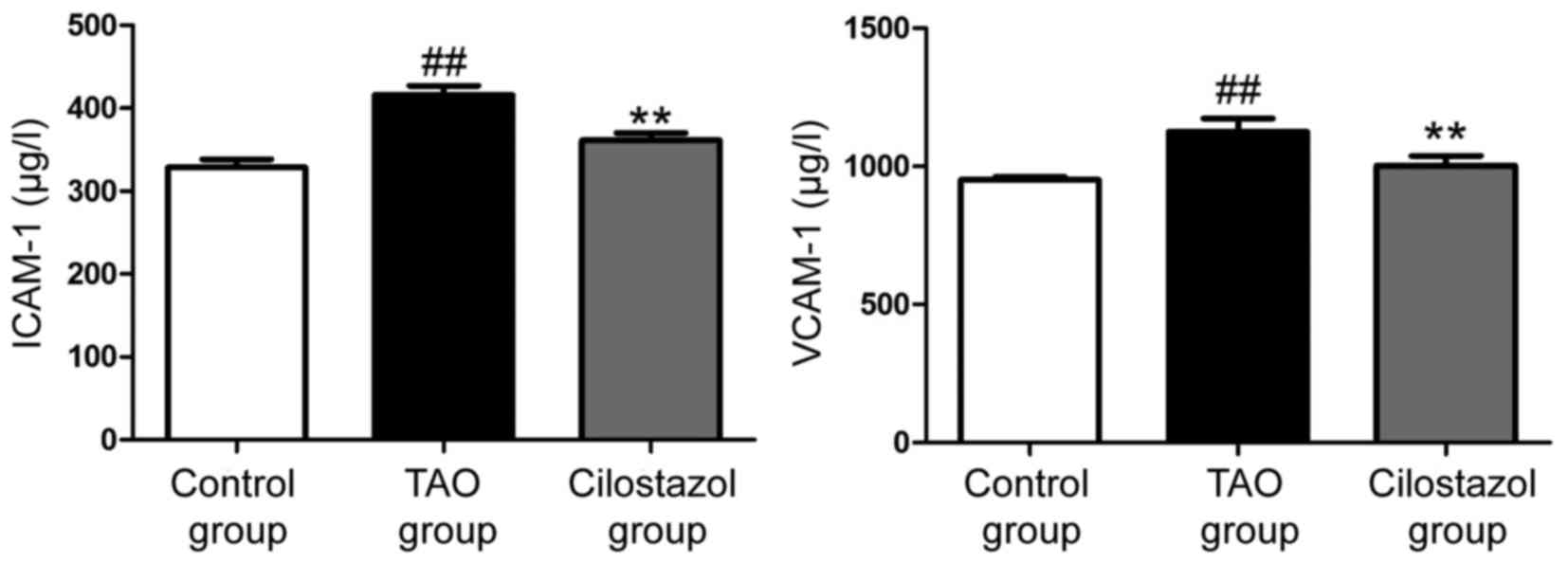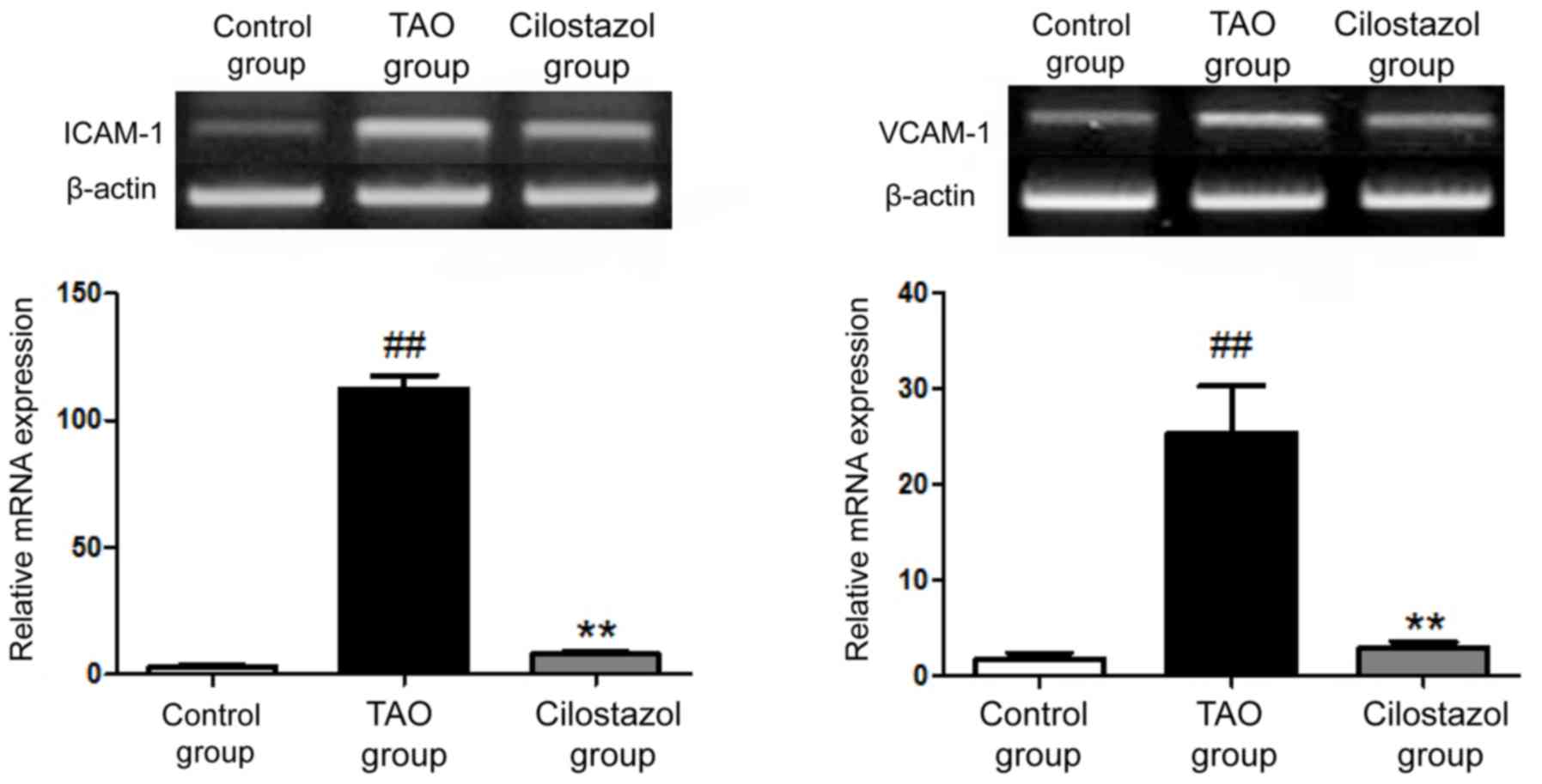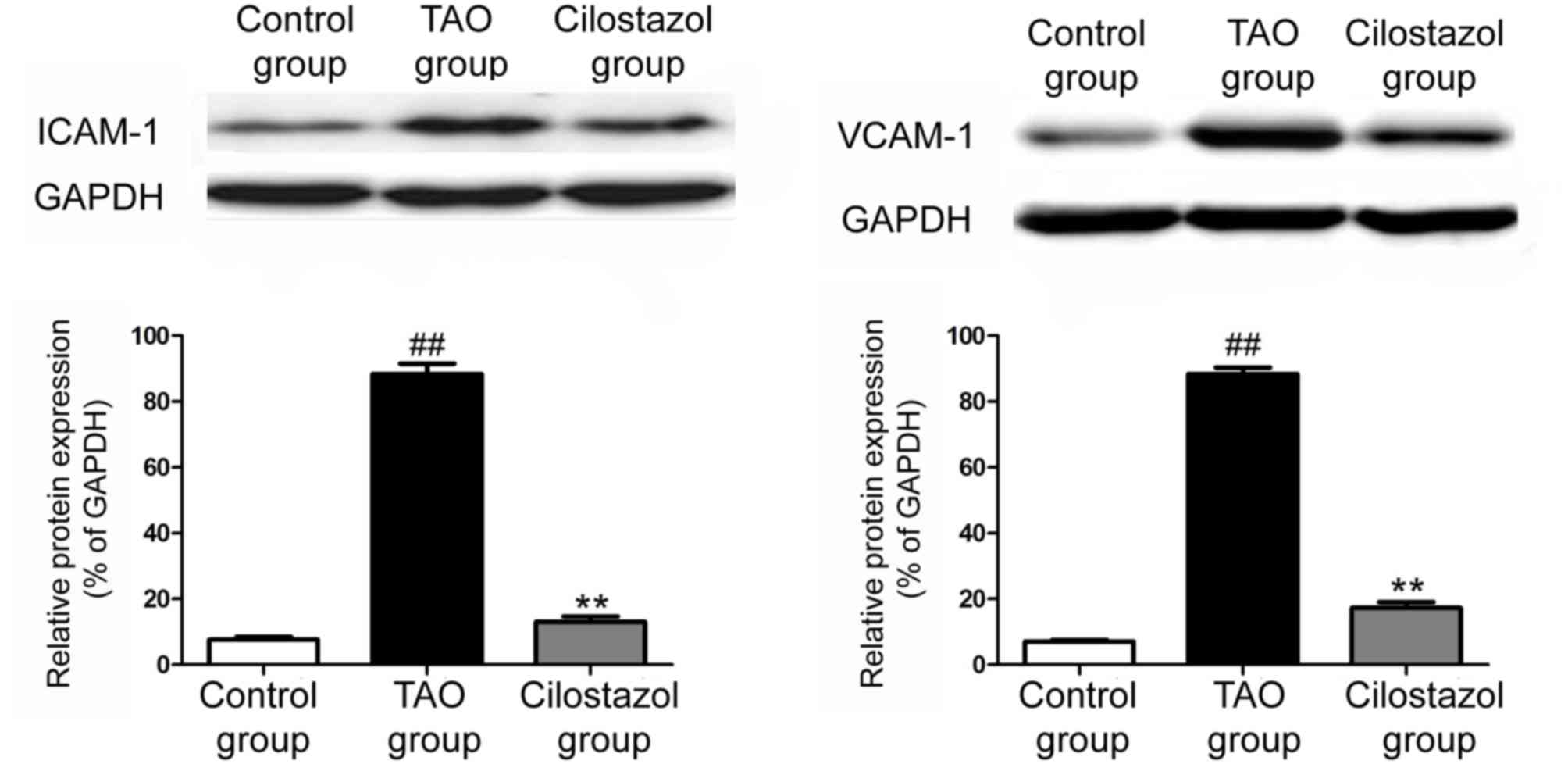|
1
|
Wysokinski WE, Kwiatkowska W,
Sapian-Raczkowska B, Czarnacki M, Doskocz R, Kowal-Gierczak B and
Wysokinski WE: Sustained classic clinical spectrum of
thromboangiitis obliterans (Buergers disease). Angiology.
51:141–150. 2000. View Article : Google Scholar : PubMed/NCBI
|
|
2
|
Tse TS, Mcbane RD, Stanson AW, Ballman KV,
Mikhail MA and Cooper LT: Secular trends and long-term survival in
thromboangiitis obliterans. J Am Coll Cardiol. 39:2652002.
View Article : Google Scholar
|
|
3
|
Sasaki S, Sakuma M and Yasuda K: Current
status of thromboangiitis obliterans (Buergers disease) in Japan.
Int J Cardiol. 75 Suppl 1:S175–S181. 2000. View Article : Google Scholar : PubMed/NCBI
|
|
4
|
Sun XL, Law BY, de Seabra Rodrigues Dias
IR, Mok SWF, He YZ and Wong VK: Pathogenesis of thromboangiitis
obliterans: Gene polymorphism and immunoregulation of human
vascular endothelial cells. Atherosclerosis. 265:258–265. 2017.
View Article : Google Scholar : PubMed/NCBI
|
|
5
|
Marchetti C, Poggi P, Cornaglia AI, Farina
A and Rizzo S: Morphologic characteristics of initial lymphatics of
the healthy and diseased human gingiva. Anat Rec. 255:175–179.
1999. View Article : Google Scholar : PubMed/NCBI
|
|
6
|
Iwai T: Periodontal bacteremia and various
vascular diseases. J Periodontal Res. 44:689–694. 2009. View Article : Google Scholar : PubMed/NCBI
|
|
7
|
Chen YW, Nagasawa T, Wara-Aswapati N,
Ushida Y, Wang D, Takeuchi Y, Kobayashi H, Umeda M, Inoue Y, Iwai
T, et al: Association between periodontitis and anti-cardiolipin
antibodies in Buerger disease. J Clin Periodontol. 36:830–835.
2009. View Article : Google Scholar : PubMed/NCBI
|
|
8
|
Chen Z, Takahashi M, Naruse T, Nakajima T,
Chen YW, Inoue Y, Ishikawa I, Iwai T and Kimura A: Synergistic
contribution of CD14 and HLA loci in the susceptibility to Buerger
disease. Hum Genet. 122:367–372. 2007. View Article : Google Scholar : PubMed/NCBI
|
|
9
|
Maslowski L, McBane R, Alexewicz P and
Wysokinski WE: Antiphospholipid antibodies in thromboangiitis
obliterans. Vasc Med. 7:259–264. 2002. View Article : Google Scholar : PubMed/NCBI
|
|
10
|
Undas A, Nowakowski T, Cieśla-Dul M and
Sadowski J: Abnormal plasma fibrin clot characteristics are
associated with worse clinical outcome in patients with peripheral
arterial disease and thromboangiitis obliterans. Atherosclerosis.
215:481–486. 2011. View Article : Google Scholar : PubMed/NCBI
|
|
11
|
Zheng P, Chen SJ and Shao HZ: Studies on
hypercoagulation state in thromboangiitis obliterans. Chin Med J
(Engl). 102:67–71. 1989.PubMed/NCBI
|
|
12
|
Avcu F, Akar E, Demirkiliç U, Yilmaz E,
Akar N and Yalçin A: The role of prothrombotic mutations in
patients with Buergers disease. Thromb Res. 100:143–147. 2000.
View Article : Google Scholar : PubMed/NCBI
|
|
13
|
Brodmann M, Renner W, Stark G, Winkler M,
Pabst E, Hofmann C and Pilger E: Prothrombotic risk factors in
patients with thrombangitis obliterans. Thromb Res. 99:483–486.
2000. View Article : Google Scholar : PubMed/NCBI
|
|
14
|
Dellalibera-Joviliano R, Joviliano EE and
Evora PR: Determination of kininogens levels and
kallikrein/kininase II activities in patients with thromboangiitis
obliterans. Scand J Immunol. 72:128–133. 2010. View Article : Google Scholar : PubMed/NCBI
|
|
15
|
Idei N, Nishioka K, Soga J, Hidaka T, Hata
T, Fujii Y, Fujimura N, Maruhashi T, Mikami S, Teragawa H, et al:
Vascular function and circulating progenitor cells in
thromboangitis obliterans (Buergers disease) and atherosclerosis
obliterans. Hypertension. 57:70–78. 2011. View Article : Google Scholar : PubMed/NCBI
|
|
16
|
Azizi M, Boutouyrie P, Bura-Rivière A,
Peyrard S, Laurent S and Fiessinger JN: Thromboangiitis obliterans
and endothelial function. Eur J Clin Invest. 40:518–526. 2010.
View Article : Google Scholar : PubMed/NCBI
|
|
17
|
Halacheva K, Gulubova MV, Manolova I and
Petkov D: Expression of ICAM-1, VCAM-1, E-selectin and TNF-α on the
endothelium of femoral and iliac arteries in thromboangiitis
obliterans. Acta Histochem. 104:177–184. 2002. View Article : Google Scholar : PubMed/NCBI
|
|
18
|
Luo Y, Feng J, Xu Q, Wang W and Wang X:
NSun2 deficiency protects endothelium from inflammation via mRNA
methylation of ICAM-1. Circ Res. 118:944–956. 2016. View Article : Google Scholar : PubMed/NCBI
|
|
19
|
Slavov ES, Stanilova SA, Petkov DP and
Dobreva ZG: Cytokine production in thromboangiitis obliterans
patients: New evidence for an immune-mediated inflammatory
disorder. Clin Exp Rheumatol. 23:219–226. 2005.PubMed/NCBI
|
|
20
|
Małecki R, Zdrojowy K and Adamiec R:
Thromboangiitis obliterans in the 21st century: a new face of
disease. Atherosclerosis. 206:328–334. 2009. View Article : Google Scholar : PubMed/NCBI
|



















